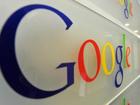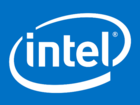Smart capabilities have become the latest marketing pitch to sell more wristwatches, TVs, eyeglasses, refrigerators, cars and even toothbrushes. But have we figured out why they need to be smart?
I asked myself that as I wore LG's Lifeband Touch day and night for a week.
 Full Story
Full Story
Sony have topped worldwide sales of video game consoles for the first time in eight years, a newspaper reported Saturday, pipping struggling rival Nintendo and signalling the Playstation manufacturer's comeback.
Sony Computer Entertainment (SCE) sold 18.7 million PlayStation 4 (PS4) systems and other game consoles for the fiscal year to March, the Nikkei business daily said, to Nintendo's 16.31 million units.
 Full Story
Full Story
Wireless carrier Vodafone Group PLC is performing a tricky balancing maneuver by publishing a report on government surveillance of its subscribers in 29 countries — a release that reveals more than first meets the eye.
In the report published Friday, Vodafone, which has unparalleled global reach for a cellphone company, said six countries have demanded direct access to its network. That cuts Vodafone's employees out of the surveillance process, removing one of the hurdles that can curb government overreach.
 Full Story
Full Story
Samsung unveiled plans Thursday to produce a co-branded tablet computer with U.S. bookseller Barnes & Noble, which has struggled with its Nook line of devices.
The two firms said in a statement they would produce Samsung Galaxy Tab 4 Nook tablets "with easy access to Barnes & Noble's expansive digital collection of more than three million books, leading magazines and newspapers."
 Full Story
Full Story
Pinterest on Thursday began dabbling with ramping up ad revenue by letting marketers promote their own "pins" at the popular online bulletin board venue.
The startup added do-it-yourself promoted pins, expanding a test of serving up ads in the form of Pinterest posts prominently displayed on search or category pages.
 Full Story
Full Story
Google on Thursday revealed that is working on a tablet computer with 3D and motion-sensing capabilities in an effort dubbed Project Tango.
"The goal of Project Tango is to give mobile devices a human-scale understanding of space and motion," team member Johnny Lee said at a website devoted to the endeavor.
 Full Story
Full Story
A cooing, gesturing humanoid on wheels that can decipher emotions has been unveiled in Japan by billionaire Masayoshi Son who says robots should be tender and make people smile.
Son's mobile phone company Softbank said Thursday that the robot it has dubbed Pepper will go on sale in Japan in February for 198,000 yen ($1,900). Overseas sales plans are under consideration but undecided.
 Full Story
Full Story
U.S. computer chip giant Intel said its gesture-controlled technology could soon become part of everyday life as it showed its vision of a no-touch lifestyle in Taiwan Thursday.
Its stand at Computex, Asia's largest technology trade show, recreates a living space centered around a kitchen, illustrating how sticky fingers on screens and recipe books could be a thing of the past.
 Full Story
Full Story
Google announced Wednesday it would open a center for tech start-ups in Warsaw in 2015, marking the IT giant's third such Campus after similar spaces in London and Tel Aviv.
The 1,800-square-meter (19,500-square-foot) center will open in the first half of next year and provide tech innovators with mentoring and training from both Google employees and experienced entrepreneurs.
 Full Story
Full Story
A study disputing findings that the U.S. lags in Internet speeds said Wednesday that Americans have better access to broadband than most Europeans.
The University of Pennsylvania study contradicts many previous surveys that suggest U.S. consumers pay more for Internet access, with lower speeds.
 Full Story
Full Story



